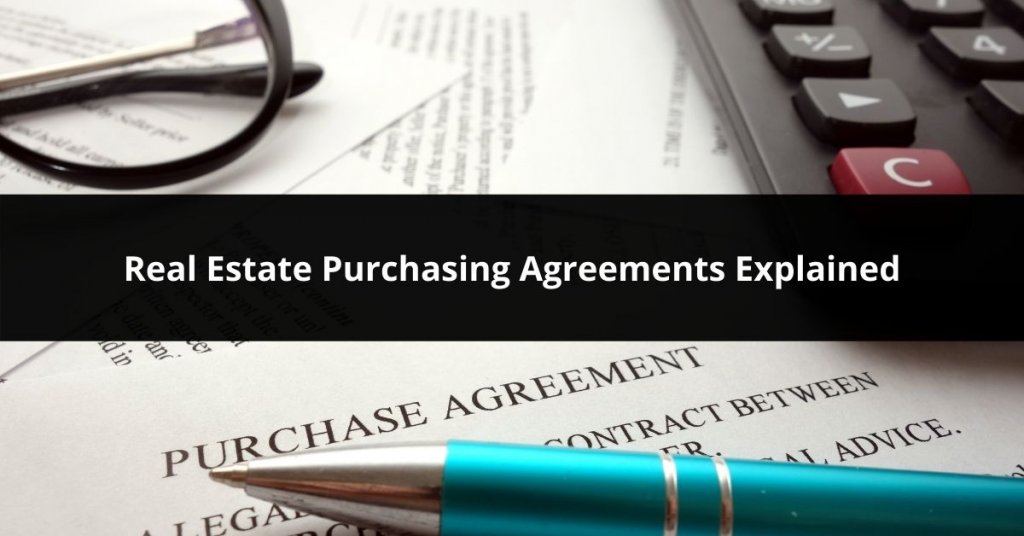You’re purchasing a home and are in the midst of negotiations when all of a sudden a real estate purchasing agreement is handed to you. Don’t panic, a real estate purchasing agreement is a standard document that you and the seller must sign before going through with the sale of the home.
This post will help you be prepared at the closing table knowing what a real estate purchasing agreement is, why it needs to be signed, and what to look for. By knowing this information, you’ll be one step closer to a quick-and-easy closing.
What Is a Real Estate Purchasing Agreement?
A real estate purchasing agreement is a document that a home buyer’s real estate agent or a home buyer will fill out with the details of the sale. Unless the real estate agent or the home buyer is a licensed attorney, they cannot create their own real estate purchasing agreement, so the agent will use their firm’s standard document and fill in the blanks, or a home shopper will need to hire a real estate attorney to create one.
The details included on a real estate purchasing agreement include everything from the total sale amount to any conditions that the buyer has. Both the buyer and seller will need to sign this document before the closing process can begin.
Once both parties have signed, real estate purchasing agreement becomes a legally binding document. This is why it is important that you understand what you are committing to regardless if you are buying or selling a house.
Let’s explore this a little more from both the buyer and seller point of view.
How a Real Estate Purchase Agreement Protects the Seller
A real estate purchase agreement protects the seller by requiring the buyer to make an earnest money deposit. This gives the seller a guarantee that the buyer is serious and wants to move forward. Once earnest money is sent, the buyer can only back out of the agreement under conditions that are detailed and agreed upon in the real estate purchasing agreement.
If the buyer backs out for a reason that isn’t listed in the agreement, the seller will still receive the earnest money deposit that the buyer made (normally 1% – 2% of the purchasing price).
Pro-tip: If the buyer breaks the purchase agreement by backing out of the deal, there could be legal consequences since this is considered to be a breach of contract.
In accordance with U.S. code 52.233-4, a breach of contract is open to legal consequences. While the seller could choose to seek a more damaging legal remedy, the most common consequence is that the seller will be able to keep the earnest money deposit that the buyer makes once the purchasing agreement has been signed.
How a Real Estate Purchase Agreement Protects the Buyer
A real estate purchase agreement protects the house buyer by detailing certain conditions that allow the buyer to back out of the deal without facing any consequences. If you sent earnest money and the seller does not meet a condition, your earnest money deposit will be returned to you.
An example could be if the home is in worse condition than advertised. If this happens during inspection you can back out of the deal without losing your earnest money deposit if this is covered in your real estate purchasing agreement. Another example is if you’re unable to secure a mortgage or a loan. That isn’t your fault, especially if you had a pre-approval letter. So make sure you include this stipulation in the real estate purchasing agreement.
Changes that Occur from State to State
Before you enter a real estate purchasing agreement, keep in mind that state laws can differ in regards to the types of information that must be included. For instance, the New York purchasing agreement states that a septic system inspection must take place. Check with your local county and state laws, or consult a licensed and experienced real estate attorney to make you aware of your state and region’s requirements.
Real estate purchasing agreements are an essential component of buying or selling a home. They are put in place to clarify what is expected of both the buyer and the seller and to protect both parties. And now you know what a real estate purchasing agreement is and what to look for before you get to the closing table.

